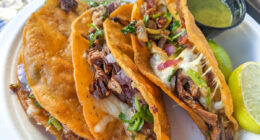Days after Ken was murdered, in the summer of 1998, the then-21-year-old Hua Hsu went out into the California sunshine and bought a journal. Everything is wrong, he scrawled in permanent black marker across the first page – because everything was. Laughter distressed him. Pop harmonies were unlistenable. He even shaved off his hair with clippers. For some time after his friend’s savage killing, Hsu’s relationship to most things, including writing itself, changed beyond all recognition.
“I think for a long time I was searching for a language,” the author and journalist says of his evolving grief. In the 25 years since his friend’s senseless killing – Ken’s body was found in an alleyway after he was abducted by three strangers as he left his own housewarming party – its sensory traces are still fresh in Hsu’s mind as he speaks to me from his tidy office in Brooklyn, during the early hours of Monday morning. The past still permeates the present. So much so that that summery day in 1998 still lingers. His college bond with Ken may well be “a three-year period of a life that’s now more than 30 years on”, but it still has much to say about the devotional pull that’s kept the writer revisiting their friendship, again and again, over the past decades.
“It’s one thing to hold on to a moment from the past, it’s another to think about all the good stuff that cemented this person in my mind,” Hsu, now 46, ponders as we talk about his poignant new memoir, Stay True, a book that’s taken him a quarter of a century to write. Already a professor of English at Bard College and a staff writer at the New Yorker, Hsu has taken his time to try to fathom the unfathomable: a senseless act of violence that robbed him of a burgeoning friendship only a month after he had turned 21. “He did what they asked,” Hsu writes. “He got into the trunk. He gave them his bank cards. Nevertheless, they shot him through the back of the head.” That we only encounter this monstrous act halfway through the book says a lot about the elliptical way in which Hsu has sought to investigate his grief in his 40s.
“There’s always that lingering doubt when a narrative gets broken,” Hsu says as we discuss this passing of time.
“I think the older I got, and the more distance there was between me and that moment, the more the writing made sense as a desire to understand why I still thought about these things.”
Hailed to be “an evolutionary step for Asian American literature” by New York Magazine, where the Pulitzer prize-winning author really ascends is in his cerebral exploration of memory in times of trauma. Are our recollections always dependable, he asks? And if they aren’t, how can we trust the ones we carry, particularly as time progresses, and we begin rewriting the past to frame who we are now.
What was it about that moment? What was it about this friend? “I didn’t realise, until I started writing this book, how male friendship is not a subject that gets unpacked that much,” Hsu says as we return to their first interaction at Berkeley – and the complexities that initially separated them. “The first time I met Ken, I hated him,” he deadpans, when we’re first introduced to the 18-year-old San Diegan on the third floor of Hsu’s dorm. Ken’s home city may seem inconsequential, but when added to all the rest – his fraternity antics, for instance – it combines to make a “genre of person” that the earnest Hsu doesn’t want to be: mainstream. “I’m the joke of the book, I’m the one who’s made fun of,” Hsu says with a knowing smile. “I was quiet, and Ken was loud,” he writes. “He projected confidence, I found people suspicious.” Hsu is still friends with most of the people from his college years and most of them have said since reading Stay True: “You’re not that much of a prick”. He laughs.
For Hsu, the son of Taiwanese immigrants, who made fanzines, and wrote passionately to the Nirvana fanclub, Ken represented everything he was reacting against. As well as being “flagrantly handsome” he also seemed too eager for the adult world. At the crux of their differences, “he was comfortable with himself”, and yet upon their first proper interaction, Hsu recognised something in the curious person he saw in front of him, and vice versa – a willingness to understand. “The more we hung out, the more I realised we were into the same bits of obscure 80s trivia about TV and baseball,” Hsu says. “He was interested in learning about all the music I was into. He understood that everyone had their own gift for others and he would seek out what that gift was.” Very soon, the two young men were inseparable – they went for late-night drives, they watched videos together, they made each other mixtapes of their favourite music.
“Millions of people liked Nirvana, millions of people wore old cardigans, but my path to it was a little different,” Hsu says. Despite his mainstream aesthetic, versus Hsu’s indie leanings, Ken’s path to it was different, too. As a Japanese American, there were parallels between the two friends when it came to their personal development. Despite the pair being homogenised as “Asian American” in the eyes of white America, the differences between them brought to light certain subtleties of belonging and identity in the United States: the experience of being an American when you feel othered by the culture around you. At the same time that Hsu was shaping himself as the son of immigrants, his parents were navigating their own relationship to their adopted country. His father had left Taiwan in 1965, his mother in 1971, both welcomed as students when the Immigration Act of 1965 relaxed restrictions on entry from Asia. Mapping out proximity to friends and Chinese food, they chose Cupertino in California – now a part of Silicon Valley – to raise their children, the suburb where Hsu grew up among the bubble-tea cafés and “a few Apple buildings that seemed a joke.”
READ RELATED: Should I worry about sharing a bed with my pet?
For Hsu, as an American child, making his zines was a way of sketching a new self into being. For his parents, however, their allegiances remained with the home they had left behind. “Maybe there was an emotional language I was seeking though music that had something to do with that context,” Hsu muses.
When Kurt Cobain died in 1994, Hsu’s father sent the mournful 17-year-old a loving fax that posed what he called the dilemma of life: “You have to find meaning, but by the same time, you have to accept the reality.”
In the years that followed Ken’s death, this outlook would prove to be a difficult one for Hsu to engage with. “In the aftermath, my parents weren’t necessarily encouraging of me to stay in my thoughts,” Hsu says – by which he means his grief.
His parents thought his priority should be to keep living, that life goes on, “which I found to be a cruel piece of advice to give.” Now, however, at 46, “I completely understand why they felt like that.” In the same way that you can never fully understand your grief, I wonder whether you can ever truly understand your parents. “From a very young age my dad said, your life is harder than mine because you have way more choices,” Hsu recalls.
“The first generation thinks about survival,” he writes, “the ones that follow tell the stories.” The answer, for Hsu, lay in writing, to give the past, and his grief, meaning. In the weeks after Ken’s murder, it wasn’t just melodies that changed, his handwriting altered, too, “growing curvier and more ornate, like the violent fury of graffiti tags”. The first night without him, he typed a letter to Ken detailing everything he’d left behind: the bandage he’d affixed to the air freshener in his car, the lucky volleyball shirt still in his hamper back home.
“If it weren’t for Ken’s death, I probably wouldn’t be a writer,” he says. “At all?” I exclaim. “Yeah,” he replies before pausing for a moment, something he does often throughout our conversation – still searching for a language. “At the back of my mind, I always knew I wanted to go back to the subject I was writing about in my journal.”
He should have stayed, he told his therapist in his early grief – he could have done something. Hsu left Ken’s house party early that night to go to a rave. A few hours later he was dead. Have the “what ifs” softened over time, I wonder? It wasn’t necessarily guilt over his movements that night because he was always going to leave, he answers. “It was probably the sense of relief I felt in not staying.” Ken had suggested that they take his work colleague swing dancing the next evening – not exactly Hsu’s thing. “Not only did I not stay but I was actually relieved when he didn’t call the next day.” His relationship to all this has changed a lot over the years, he’s quick to add. “There’s a relationship between finally writing it all down and feeling a sense of peace, but it wasn’t necessarily what I was seeking,” he says.
If anything, writing about his friendship with Ken has given him his first opportunity to feel happy when he thinks about it. Happy to have known him. One of the final images of Ken that we’re left with heartachingly embodies this subtle shift in his grief. Ken used to sell children’s shoes and, one day, when Hsu went to find him, he watched incognito as Ken carefully tied a balloon and handed it to a child waiting with his parents. It was a generous act, Hsu writes. “I simply felt lucky to witness something so effortlessly kind – to see my friend do something good.” When it comes to joy and sadness, he reminds me, one doesn’t diminish the other. “The true account would necessarily be joyful, rather than morose,” he writes directly to Ken in the book’s closing lines, “and surrendering to joy wouldn’t mean I was abandoning you.”
Stay True by Hua Hsu is published by Pan Macmillan at £10.99. Buy it for £9.67 from guardianbookshop.com





